-
 Univers
Univers
-
 Ebooks
Ebooks
-
 Livres audio
Livres audio
-
 Presse
Presse
-
 Podcasts
Podcasts
-
 BD
BD
-
 Documents
Documents
-
- Cours
- Révisions
- Ressources pédagogiques
- Sciences de l’éducation
- Manuels scolaires
- Langues
- Travaux de classe
- Annales de BEP
- Etudes supérieures
- Maternelle et primaire
- Fiches de lecture
- Orientation scolaire
- Méthodologie
- Corrigés de devoir
- Annales d’examens et concours
- Annales du bac
- Annales du brevet
- Rapports de stage
La lecture à portée de main
Postgraduate Education - Form and Function , livre ebook
242
pages
English
Ebooks
2011
Obtenez un accès à la bibliothèque pour le consulter en ligne En savoir plus
Découvre YouScribe en t'inscrivant gratuitement
Découvre YouScribe en t'inscrivant gratuitement
242
pages
English
Ebook
2011
Obtenez un accès à la bibliothèque pour le consulter en ligne En savoir plus
Publié par
Date de parution
01 avril 2011
Nombre de lectures
0
EAN13
9781912969555
Langue
English
Poids de l'ouvrage
4 Mo
This anthology presents integrated discussions of three central themes: learning in postgraduate education, developing a curriculum for postgraduate education, and supervising postgraduate learning. These themes are vital for a close understanding of how postgraduate education can be fostered in higher education, both in facilitating learning and as students' learning outcome. The book's theoretical contributions address questions such as: What is the theory behind learning in postgraduate education? How is the curriculum for postgraduate programs developed? Practical contributions address questions like: What constitutes learning in postgraduate education? What are the features of curricula in postgraduate education? In practice, how do we improve students' learning in postgraduate studies?
This book is a response to concerns that policies and practices of higher education have tended to draw too much attention toward academic content and to teaching as a core discipline. Yet literature suggests that students are often ill-prepared for the changes in learning, teaching, and curriculum approaches from the undergraduate to postgraduate levels. While the dominant belief appears to be that students learn when teachers transfer knowledge to them, the students themselves expect to function more independently in postgraduate education.
This anthology presents an alternative view, moving from a discipline-based view to a learning-based view on higher education. Working with quality enhancement is the art of positively matching multiple stakeholder relations and at the same time continuously innovating within existing good practice. The chapter authors reflect upon proposed strategies for managing stakeholder relations.
Publié par
Date de parution
01 avril 2011
Nombre de lectures
0
EAN13
9781912969555
Langue
English
Poids de l'ouvrage
4 Mo
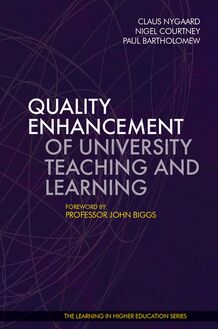
Ebooks
Quality Enhancement of University Teaching and Learning

Ebooks
Etudes supérieures
Quality Enhancement of University Teaching and Learning
280 pages
English
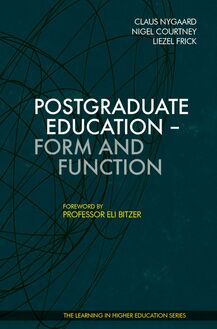
Ebooks
Postgraduate Education - Form and Function

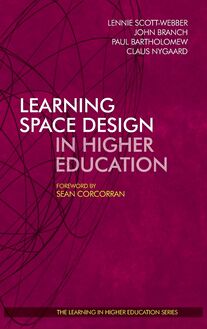
Ebooks
Learning Space Design in Higher Education

Ebooks
Architecture et design
Learning Space Design in Higher Education
326 pages
English
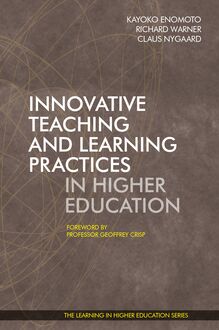
Ebooks
Innovative Teaching and Learning Practices in Higher Education

Ebooks
Economie
Innovative Teaching and Learning Practices in Higher Education
248 pages
English
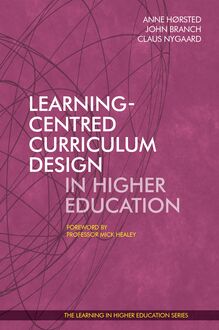
Ebooks
Learning-Centred Curriculum Design in Higher Education

Ebooks
Etudes supérieures
Learning-Centred Curriculum Design in Higher Education
320 pages
English
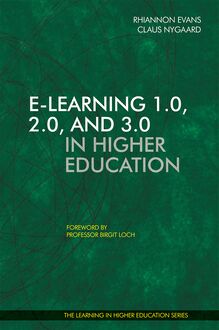
Ebooks
E-Learning 1.0, 2.0, and 3.0 in Higher Education

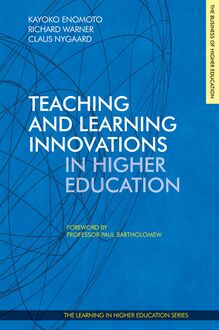
Ebooks
Teaching and Learning Innovations in Higher Education

Ebooks
Etudes supérieures
Teaching and Learning Innovations in Higher Education
518 pages
English
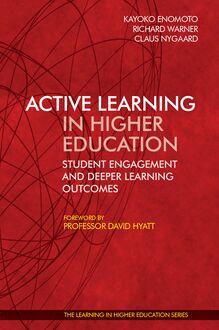
Ebooks
Active Learning in Higher Education
Kayoko Enomoto; Richard Warner and Claus Nygaard

Ebooks
Etudes supérieures
Active Learning in Higher Education
Kayoko Enomoto; Richard Warner and Claus Nygaard
352 pages
English
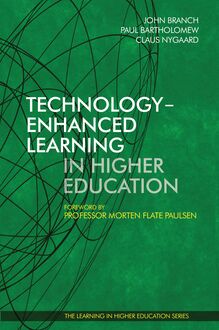
Ebooks
Technology-Enhanced Learning in Higher Education

Ebooks
Etudes supérieures
Technology-Enhanced Learning in Higher Education
264 pages
English
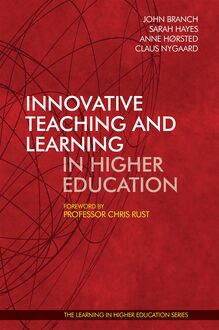
Ebooks
Innovative Teaching and Learning in Higher Education

Ebooks
Etudes supérieures
Innovative Teaching and Learning in Higher Education
444 pages
English
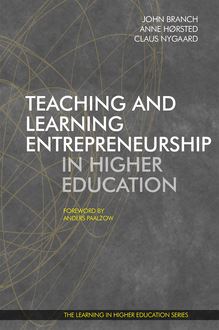
Ebooks
Teaching and Learning Entrepreneurship in Higher Education
John Branch, Anne Horsted

Ebooks
Création d'entreprise
Teaching and Learning Entrepreneurship in Higher Education
John Branch, Anne Horsted
306 pages
English
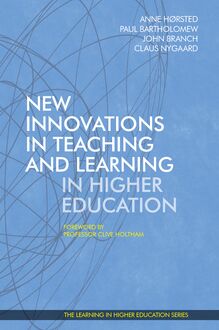
Ebooks
New Innovations in Teaching and Learning in Higher Education

Ebooks
Annales d’examens et concours
New Innovations in Teaching and Learning in Higher Education
484 pages
English
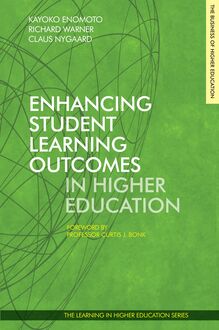
Ebooks
Enhancing Student Learning Outcomes in Higher Education

Ebooks
Etudes supérieures
Enhancing Student Learning Outcomes in Higher Education
460 pages
English
-
 Univers
Univers
-
 Ebooks
Ebooks
-
 Livres audio
Livres audio
-
 Presse
Presse
-
 Podcasts
Podcasts
-
 BD
BD
-
 Documents
Documents
-
Jeunesse
-
Littérature
-
Ressources professionnelles
-
Santé et bien-être
-
Savoirs
-
Education
-
Loisirs et hobbies
-
Art, musique et cinéma
-
Actualité et débat de société
-
Jeunesse
-
Littérature
-
Ressources professionnelles
-
Santé et bien-être
-
Savoirs
-
Education
-
Loisirs et hobbies
-
Art, musique et cinéma
-
Actualité et débat de société
-
Actualités
-
Lifestyle
-
Presse jeunesse
-
Presse professionnelle
-
Pratique
-
Presse sportive
-
Presse internationale
-
Culture & Médias
-
Action et Aventures
-
Science-fiction et Fantasy
-
Société
-
Jeunesse
-
Littérature
-
Ressources professionnelles
-
Santé et bien-être
-
Savoirs
-
Education
-
Loisirs et hobbies
-
Art, musique et cinéma
-
Actualité et débat de société
- Cours
- Révisions
- Ressources pédagogiques
- Sciences de l’éducation
- Manuels scolaires
- Langues
- Travaux de classe
- Annales de BEP
- Etudes supérieures
- Maternelle et primaire
- Fiches de lecture
- Orientation scolaire
- Méthodologie
- Corrigés de devoir
- Annales d’examens et concours
- Annales du bac
- Annales du brevet
- Rapports de stage





